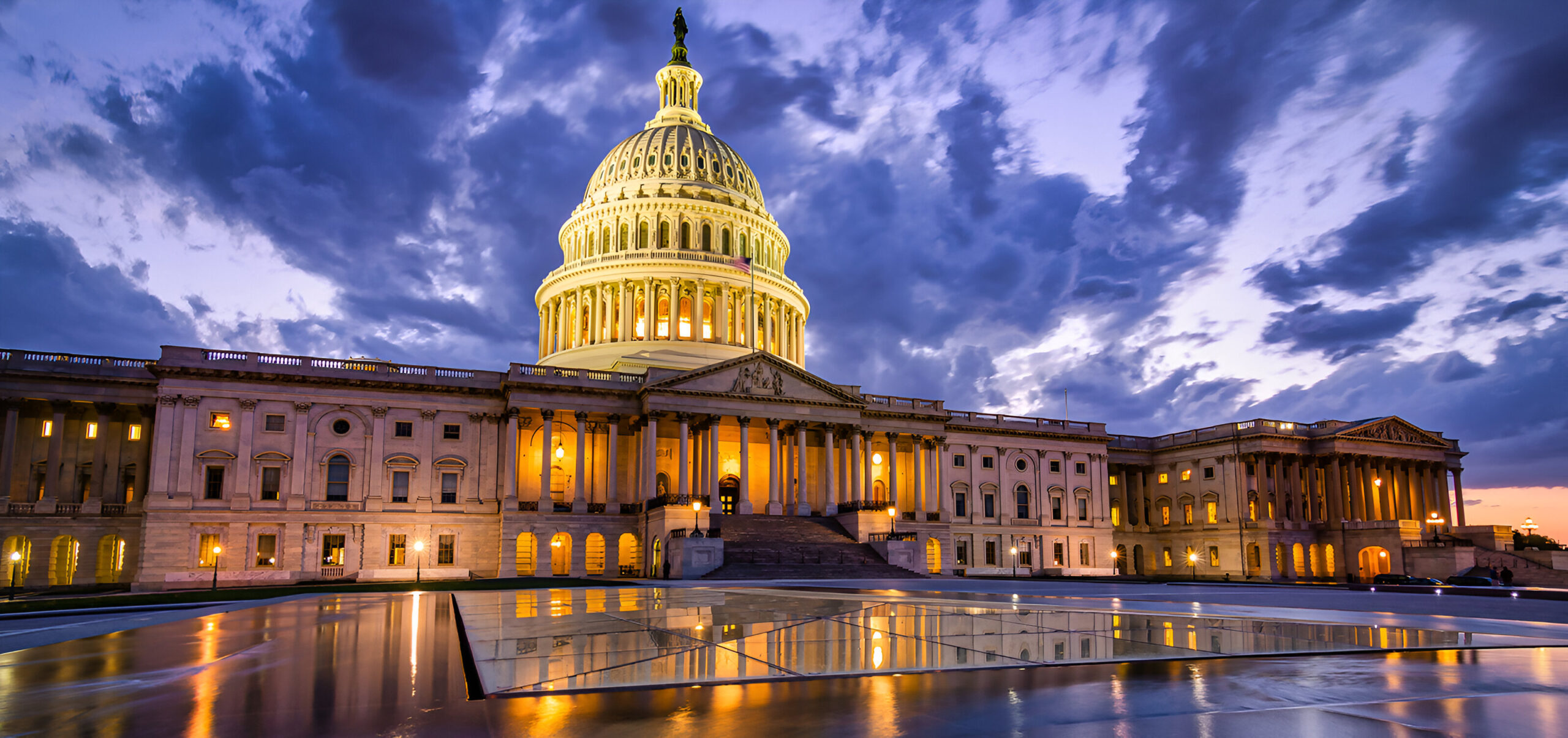Navigate the evolving landscape of employee benefits with confidence using our expert insights in 'A Guide to State-Mandated Retirement Plans.'
Key Takeaways
- Increasing State Initiatives: Over the last decade, 47 U.S. states have actively addressed the retirement crisis through mandatory programs, emphasizing their commitment.
- Penalties for Non-Compliance: States with retirement plan mandates impose significant penalties. For instance, in California, non-compliance with CalSavers can result in fines of $250 per eligible employee for the initial notice and an additional $500 per eligible employee for prolonged non-compliance.
- Retirement Crisis Justification: States are adopting retirement plan mandates in response to a significant national retirement savings crisis, with one in four Americans having no retirement savings and a $3.68 trillion shortfall among households aged 35 to 64 by January 1, 2020.
- State-by-State Mandates: As of January 2024, 19 states have established retirement plan mandates, each with unique criteria and obligations for businesses to follow.
- Choosing Between State and Private Plans: Businesses in states with mandates must strategically decide between state-run plans and private options, considering factors such as costs, administrative requirements, contribution limits, and the potential eligibility for tax credits with private plans.
Introduction
Today’s dynamic employee benefits landscape sees a significant shift in retirement plans, especially in states witnessing rising mandates. The guide, “A Comprehensive Guide to State-Mandated Retirement Plans,” explores intricacies, shedding light on requirements and penalties. Despite only 19 states enforcing employer-sponsored retirement plans, significant progress is noted in the last decade. Notably, 47 states are actively pursuing compulsory retirement programs or introducing relevant legislation, as highlighted by Georgetown University’s McCourt School of Public Policy Center for Retirement Initiatives (CRI).
As these mandates expand, businesses must assess their compliance with the requirements and understand necessary steps. The following offers an in-depth examination of these developments.
What is a State-Mandated Retirement Plan, and Who is Impacted?
A state-mandated retirement plan is a prescribed initiative by state governments, targeting private-sector employees without access to employer-sponsored retirement plans. These programs aid small businesses in offering retirement savings alternatives.
States have introduced auto-IRA programs, requiring employers without a retirement plan to enroll employees in a Roth IRA. While rules differ, the goal remains consistent — enhancing retirement savings for those lacking employer-sponsored plans. Despite being state-mandated, employee participation is typically voluntary.
It’s vital to recognize that while these plans suit some businesses, alternative options like 401(k) or 403(b) plans may be more advantageous based on unique business characteristics and employee requirements. Contact us for a complimentary consultation to explore and compare your retirement options.
What Are the Penalties for Non-Compliance with Mandated Retirement Plans?
States imposing retirement plan mandates penalize businesses for failing to provide access. In California, non-compliance with CalSavers incurs a penalty of $250 per eligible employee for the initial notice and an additional $500 per eligible employee if non-compliance persists 180 days after notice. Penalties vary, emphasizing the need for thorough research on local laws.
Why Are States Adopting Retirement Plan Mandates?
The U.S. faces a retirement savings crisis, with one in four Americans having no retirement savings. States like Oregon, California, and Illinois address this by implementing state-mandated retirement plans to structure savings and alleviate challenges faced by a significant population.
Your New 401(k) Could be Fully Reimbursed See Your Secure Act 2.0 Savings Now
Which States Have Retirement Plan Mandates?
California
Under state legislation, businesses that do not provide their own retirement plan must actively participate in the CalSavers program. Businesses that meet the criteria of employing, on average, a minimum of five California-based employees in the previous calendar year, with at least one being 18 years or older and without sponsoring a qualified retirement plan, must actively register for CalSavers.
Colorado
According to Colorado law, businesses operational for at least two years and employing five or more individuals must actively participate in the Colorado SecureSavings program. This requirement specifically targets businesses that are not currently offering a qualified retirement plan for their employees.
Connecticut
Connecticut state law mandates that employers, whether for-profit or not-for-profit, actively participate in the state’s retirement savings program, MyCTSavings, under certain conditions. This applies if the employer had at least five employees in Connecticut as of October 1st of the previous calendar year, paid at least five of those employees a minimum of $5,000 in taxable wages in the same year, and does not offer a qualified, employer-sponsored retirement savings plan.
Illinois
The Illinois Secure Choice program, a state-initiated retirement savings plan, targets in-state employees. Mandatory for employers with at least five employees, in business for two years, lacking qualified plans, they must either adopt one or enroll in Secure Choice. Penalties, up to $500 per employee, pose a significant risk. For instance, a business with 25 employees could face over $6,000 in fines the first year of non-compliance.
Maine
The Maine Retirement Investment Trust (MERIT) oversees a payroll deduction Roth IRA established by the Maine Retirement Savings Board. Covered employers meeting specific criteria must offer the program, with automatic enrollment and a default 5% contribution.
Maryland
Most employers under Maryland law are required to offer retirement savings, either through a traditional pension or the MarylandSaves program. The MarylandSaves program, designed for those without access to an employer-sponsored retirement plan, mandates active participation for workers aged 18 and older.
Massachusetts
Massachusetts offers the Massachusetts Defined Contribution CORE Plan, specifically tailored for small non-profit organizations. With 20 or fewer employees in mind, this state-mandated retirement plan aims to bridge the gap for eligible organizations lacking access to employer-sponsored retirement plans. The plan stands out by providing both tax-deferred and post-tax savings options, ensuring flexibility for employees actively seeking retirement solutions.
Oregon
Oregon’s state-mandated retirement plan, OregonSaves, requires all employers without a retirement plan to actively facilitate the program, launched as a pilot program in 2017. Employers of all sizes must either actively enroll employees in OregonSaves or sponsor a qualifying retirement plan.
Virginia
Virginia’s state-mandated retirement plan, RetirePath Virginia, requires businesses with more than 25 employees operating for two or more years, and without a retirement plan option, to actively enroll in RetirePath Virginia.
Washington
The Washington Retirement Marketplace serves as an online portal for businesses with fewer than 100 employees, offering diverse plans like Traditional IRA, Roth IRA, and Traditional 401(k). This enables businesses to easily compare and enroll in retirement savings options. Despite Washington State’s lack of a mandate for businesses to provide retirement plans, the Retirement Marketplace stands as a valuable resource. It assists businesses opting to offer retirement benefits, allowing them to utilize the marketplace for employee savings facilitation. However, it’s crucial to note that Washington businesses are not obligated by law to partake in this resource.
Which States Have Retirement Plan Mandates in Progress?
Delaware
Under Delaware law, businesses employing more than five individuals without a current retirement plan must actively participate in the DE EARNS program. The program aims to facilitate retirement savings for workers and is slated for implementation on January 1, 2025.
Hawaii
The Hawaii Retirement Savings Program, Secure 2.0 Act mandates automatic enrollment in 401(k) plans for eligible workers, starting at 3% of salary and increasing annually to 10%. Small businesses under specific criteria are exempt. Changes include higher catch-up contributions for ages 62-64, increased starting age for required minimum distributions, and the option for employers to match student loan payments as retirement contributions. Savers can choose pre-tax or Roth basis for employer matches.
Minnesota
The Minnesota Secure Choice Retirement Program, as part of the SECURE 2.0 Act, introduces provisions such as deferral of tax for S corporation ESOP sales, penalty-free withdrawals for emergency expenses, increased contributions to SIMPLE retirement accounts, and special rules for distributions related to qualified disasters. Additionally, it allows a one-time $50,000 charitable distribution and excludes disability-related first responder retirement payments.
Missouri
The Missouri Workplace Retirement Savings Plan under the Secure 2.0 Act, effective from 2024, allows employers with no retirement plan to establish “starter” 401(k) and 403(b) plans for employees to defer up to $6,000 annually. These plans simplify administration for employers, don’t require complex testing, and offer a route for state coverage requirements. Additionally, the Act introduces tax credits for small employers creating startup retirement plans, with a 100% credit for eligible startup costs and a new credit for employer contributions for the first five years.
Nevada
Nevada’s state-mandated retirement plan, the Nevada Employee Savings Trust, was created under Senate Bill No. 305 and mandates registration for employees in the program by businesses employing more than five people and operating for at least 36 months. The program is set to launch by July 2025.
New Jersey
The New Jersey Secure Choice Savings Program, Secure 2.0 Act, mandates businesses with 25+ employees lacking a retirement plan to participate. Penalties for non-compliance range from warnings to $500 per employee fines. The program allows automatic payroll deductions for employees to contribute to an IRA. Employers face administrative tasks and penalties for non-compliance.
New Mexico
The New Mexico Work and Save Act addresses the state’s retirement savings crisis by offering a voluntary program for private-sector employees. It mandates participation for eligible employers, allowing auto-enrollment and auto-escalation. Employer contributions are not allowed, and fees are capped below 1%. Employees, including those in multi-employer plans, can be auto-enrolled but have opt-out options. The state aims to combat cashout leakage through collaboration with Colorado’s Secure Savings Program. Launching in July 2024, the program aims to supplement Social Security and foster retirement savings.
New York
The New York State Secure Choice Savings Program (SCSP), a state-mandated retirement plan, is currently in development. Business owners in New York must stay informed about this impending state mandate. In October 2021, Governor Kathy Hochul signed legislation mandating NYS businesses with 10+ employees and NYC businesses with 5+ employees to provide retirement options. Despite this, final details for the program, such as implementation dates and deadlines, remain undetermined as of 2023. To comply with the upcoming regulations, businesses have various options. One approach is starting a 401(k) or 403(b) plan, which not only satisfies the mandate but also offers higher contribution limits and a flexible plan design.
Vermont
VTSaves, part of the Secure 2.0 Act, is a low-cost retirement program in Vermont. It targets employers without existing plans, incurs minimal state costs, and offers employees control over contributions. With a phased rollout and potential expansion to smaller employers, VTSaves aims to increase eligibility for the Savers Match, supporting small businesses by enhancing credits for setting up retirement plans.
Which States Are Advocating Legislation, and Which States Are Still Undecided?
Several states, including Alaska, Arizona, Arkansas, Georgia, Idaho, Indiana, Iowa, Kansas, Kentucky, Louisiana, Michigan, Mississippi, Montana, Nebraska, New Hampshire, North Carolina, North Dakota, Ohio, Oklahoma, Pennsylvania, Rhode Island, South Carolina, Tennessee, Texas, Utah, West Virginia, Wisconsin, and Wyoming, are proactively considering the implementation of Secure 2.0 Act legislation to address the retirement savings crisis. Conversely, Alabama, Florida, South Dakota, and Washington D.C. are currently undecided on the matter.
Should I Opt for a State-Mandated Retirement Plan or Create My Own?
Businesses in states with retirement mandates weigh the choice between state plans and independent providers. This decision involves considering cost, administrative requirements, and contribution limits. Understanding both options is vital for informed choices aligned with financial and long-term goals. In states with mandated retirement plans, businesses choose between state-run and independent providers based on factors like financial capacity and objectives.
State-run plans offer cost-effectiveness with minimal upfront expenses and administrative requirements. However, they come with limitations on employee contributions, such as the $7,000 annual limit for Roth IRA programs. The restricted selection of investment providers and government-selected funds may not align with optimal choices.
Conversely, private 401(k) plans permit higher annual contributions, up to $23,000 according to 2024 IRS regulations. Most state-mandated IRA plans don’t allow employer contributions, with Massachusetts being an exception. Additionally, private plans may make businesses eligible for tax credits, offsetting startup or administration costs absent in state-mandated retirement plans.
What Retirement Plan is Suitable for Your Business?
Business owners must understand if state laws require offering a retirement plan. States are implementing mandates due to the significant number of Americans underprepared for retirement. Consider whether a state-run plan or private retirement plan best serves your business and employees.
Conclusion
In the evolving landscape of retirement benefits, businesses must stay informed about state-mandated plans. Whether navigating compliance or choosing the right plan, a strategic approach can enhance employee engagement and loyalty while securing their financial future. With the right plan and partner, businesses can benefit from improved employee engagement and loyalty, helping them build retirement savings. Click here to start your journey, assessing your business’s needs and receiving customized recommendations from our 401(k)-retirement specialist.
Frequently asked questions (FAQs)
- How do businesses in states with retirement mandates choose between state-run plans and private providers?
Choosing between state-run plans and private providers requires evaluating costs, administrative needs, and contribution limits. State-run plans are cost-effective with minimal upfront expenses, but they limit employee contributions. Private 401(k) plans allow higher contributions, may bring tax credits for businesses, and offer diverse investment providers. Business owners must assess these factors, aligning decisions with their financial capacity and goals. - Are businesses penalized for non-compliance with state-mandated retirement plans, and what are the penalties?
States enforcing retirement mandates penalize businesses for lack of compliance. In California, CalSavers violations incur a penalty per eligible employee. The initial notice triggers a $250 penalty, escalating to an additional $500 if non-compliance persists after 180 days. Penalties differ among states, emphasizing the need for comprehensive research to avoid financial repercussions. - What should businesses in states considering retirement plan mandates be aware of, and how can they prepare?
Businesses in states contemplating retirement plan mandates, such as Delaware, Hawaii, Minnesota, Missouri, Nevada, New Jersey, New Mexico, New York, and Vermont, should remain informed about proposed programs and timelines. Staying abreast of these developments is crucial for understanding potential obligations and penalties. To prepare, employers can consider initiating a 401(k) or 403(b) plan, ensuring compliance with forthcoming regulations. These private plans not only meet state requirements but also provide higher contribution limits and flexible plan designs.
Sources:
- California — CalSavers
- Colorado — Colorado SecureSavings
- Connecticut — MyCTSavings
- Delaware — DE EARNS
- Hawaii — Hawaii Retirement Savings Program
- Illinois — Illinois Secure Choice
- Maine — Maine Retirement Investment Trust (MERIT)
- Maryland — MarylandSaves
- Massachusetts — Massachusetts Defined Contribution CORE Plan
- Minnesota — Minnesota House Research Department
- Missouri — Missouri Workplace Retirement Savings Plan
- Nevada — Nevada Employee Savings Trust
- New Jersey — New Jersey Secure Choice Savings Program
- New Mexico — New Mexico Work and Save Act
- New York — New York Secure Choice Savings
- Oregon — OregonSaves
- Vermont — VTSaves
- Virginia — RetirePath Virginia
- Washington — Washington Retirement Marketplace







